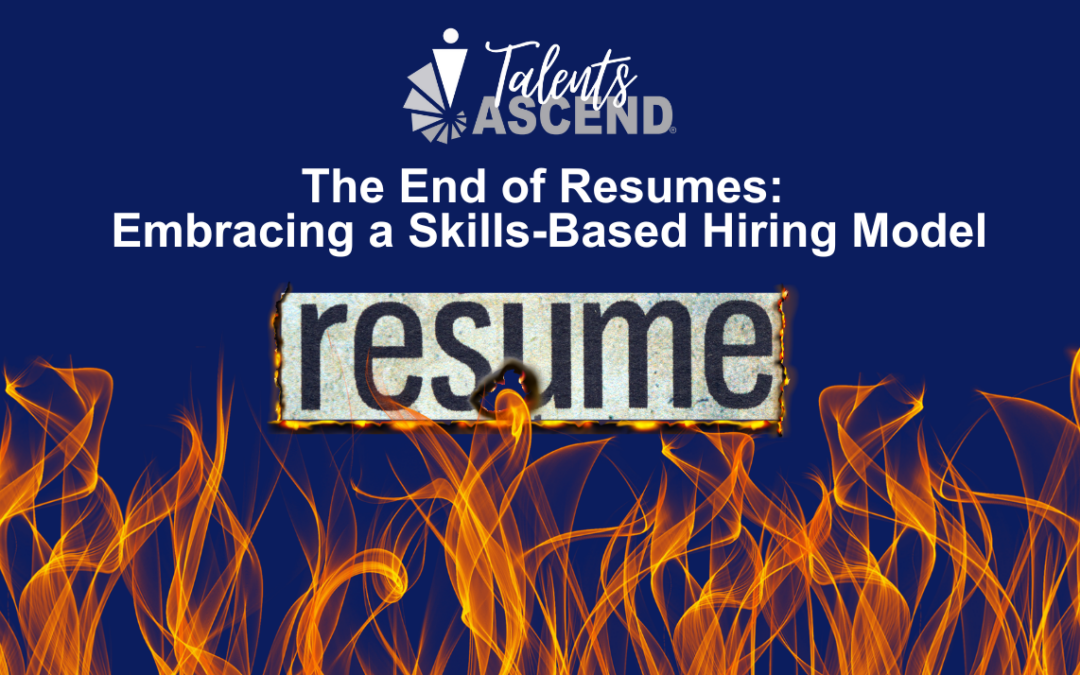For decades, the resume has been the cornerstone of the job application process. It’s a snapshot of one’s career history, educational background, and a curated list of accomplishments. But as the job market evolves, the traditional resume is becoming an increasingly outdated tool for employers and job seekers alike. Enter the skills-based hiring model, a revolutionary approach that focuses on what candidates can do rather than where they’ve been.
The Problem with Resumes
Resumes have long been criticized for their limitations. They emphasize past job titles and educational achievements, which don’t always translate to the specific skills needed for a role. This can result in a disconnect between what a candidate has done and what they can actually contribute to a company. Additionally, resumes can unintentionally perpetuate bias, with names, addresses, and dates that reveal age, gender, or ethnic background often influencing hiring decisions.
Moreover, the resume-centric approach often overlooks non-traditional career paths, such as self-taught skills, freelance work, or volunteer experiences, which may be just as valuable as formal employment but are harder to quantify in a standard resume format.
The Rise of Skills-Based Hiring
Skills-based hiring shifts the focus from past positions and educational credentials to the specific skills that are required for a job. This model assesses a candidate’s abilities through practical tests, assessments, or detailed descriptions of their skills rather than relying solely on the information found in a resume.
The benefits of this approach are numerous:
Broader Talent Pool: By removing rigid requirements like specific degrees or years of experience, companies can tap into a more diverse and inclusive talent pool. This is particularly beneficial for individuals from non-traditional backgrounds, including veterans, career changers, and those re-entering the workforce.
Better Job Fit: Skills-based hiring enables employers to find candidates who are truly equipped to perform the tasks required by the role, leading to better job performance and higher employee satisfaction.
Reduced Bias: When hiring decisions are based on demonstrated skills rather than personal information, there’s less room for unconscious bias to influence the process.
Adaptability: In a rapidly changing job market, the ability to acquire and apply new skills is more important than ever. A skills-based approach allows companies to prioritize adaptability and continuous learning over static qualifications.
How Companies Can Transition to a Skills-Based Model
Transitioning from traditional resume-based hiring to a skills-based model requires a shift in mindset and processes. Here are a few steps companies can take:
Redefine Job Descriptions: Instead of listing required degrees or years of experience, focus on the specific skills and competencies needed for the role. This might include technical abilities, soft skills, or industry-specific knowledge.
Implement Skills Assessments: Develop assessments that measure candidates’ abilities in real-world scenarios. This could involve coding tests for software developers, writing samples for content creators, or problem-solving exercises for project managers.
Utilize Technology: Platforms like Talents ASCEND offer tools that match candidates with job opportunities based on their skills rather than their resumes. These platforms use algorithms to analyze candidates’ abilities and match them with relevant roles.
Train Hiring Managers: Educate hiring managers on the importance of a skills-based approach and how to evaluate candidates beyond their resumes. This might involve training on unconscious bias, interview techniques, and the use of skills assessments.
The Future of Hiring
The shift towards skills-based hiring represents a fundamental change in how we approach talent acquisition. As more companies adopt this model, we’ll likely see a more diverse and capable workforce, with employees who are better matched to their roles and more engaged in their work.
While resumes may not disappear entirely, their importance in the hiring process is undoubtedly diminishing. The future belongs to those who can demonstrate their abilities, adapt to new challenges, and continuously build their skills. For employers, this means looking beyond the resume and focusing on what truly matters: what a candidate can do.
Visit talentsascend.com for more information about skills based hiring.

